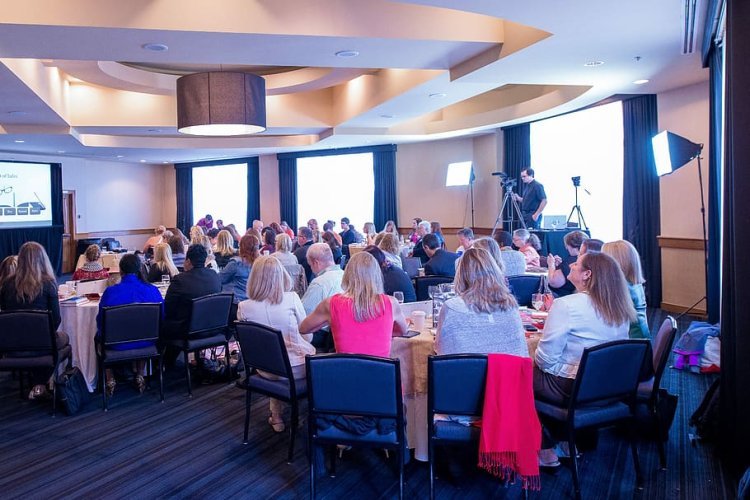7 Effective Event Promotion Tips Every Organizer Should Know
To help you navigate this landscape effectively, here are seven event promotion tips that can significantly boost attendance and engagement at your next event.

Event promotion is a crucial aspect of organizing successful events. No matter how amazing your event is, it won’t be successful unless people know about it and attend. In today’s digital age, there are numerous strategies and platforms available for event promotion, making it both exciting and challenging for event organizers. To help you navigate this landscape effectively, here are seven event promotion tips that can significantly boost attendance and engagement at your next event.
-
Define Your Target Audience Understanding your target audience is the cornerstone of effective event promotion. Before you start promoting your event, take the time to define who your ideal attendees are. Consider factors such as age, interests, location, and demographics. This information will guide your promotional efforts and help you tailor your messaging to resonate with your target audience.
-
Create Compelling Content Content is king in the digital age, and creating compelling content is essential for attracting and engaging potential attendees. Develop content that highlights the key benefits of attending your event, such as guest speakers, workshops, networking opportunities, or exclusive experiences. Use a mix of formats such as blog posts, videos, infographics, and social media posts to appeal to different audience preferences.
-
Utilize Social Media Social media platforms are powerful tools for event promotion due to their widespread reach and targeting capabilities. Create dedicated event pages or profiles on platforms like Facebook, Instagram, LinkedIn, and Twitter. Regularly post engaging content, including event teasers, speaker spotlights, behind-the-scenes glimpses, and testimonials from past attendees. Leverage relevant hashtags, collaborate with influencers or industry partners, and run targeted ads to reach your desired audience segments.
-
Optimize SEO for Event Website Your event website plays a crucial role in providing detailed information and driving conversions. Optimize your website for search engines (SEO) by incorporating relevant keywords, meta descriptions, and title tags related to your event. Create a user-friendly experience with clear navigation, mobile responsiveness, and fast loading times. Include compelling visuals, a registration or ticketing portal, agenda details, speaker bios, FAQs, and contact information to facilitate attendee engagement and conversions.
-
Implement Email Marketing Campaigns Email marketing remains a highly effective tool for event promotion, allowing you to directly engage with your target audience. Build segmented email lists based on attendee personas or registration status (e.g., leads, confirmed attendees, past attendees) and craft personalized, compelling email campaigns. Use catchy subject lines, visually appealing templates, concise yet informative content, clear CTAs for registration or RSVPs, and automated reminders leading up to the event date.
-
Leverage Influencers and Partnerships Collaborating with influencers, industry experts, sponsors, or media partners can significantly amplify your event promotion efforts. Identify relevant influencers or partners with a strong following or influence in your target audience niche. Engage them early in the promotion cycle to secure endorsements, guest appearances, sponsored content, or promotional giveaways. Co-hosting pre-event webinars, podcasts, or social media live sessions can also generate buzz and attract new attendees.
-
Encourage User-generated Content and Engagement Harness the power of user-generated content (UGC) to foster community engagement and word-of-mouth promotion. Encourage attendees, speakers, and sponsors to share their event experiences, testimonials, photos, and videos on social media using event-specific hashtags or tagging your official accounts. Run contests, challenges, or polls to incentivize participation and create buzz leading up to the event. Showcase UGC on your website, social media, and promotional materials to build credibility and excitement.
Conclusion: Effective event promotion requires a strategic approach that combines understanding your audience, creating compelling content, leveraging digital channels, and fostering community engagement. By implementing these seven event promotion tips, you can enhance visibility, attract qualified attendees, and maximize the success of your events. Continuously evaluate and iterate your promotional strategies based on analytics, feedback, and industry trends to stay ahead in the competitive events landscape.
What's Your Reaction?









![Cabin AC Filters Market [2024 To 2031] Size, Sales By 2031, Revenue Analysis Research](https://handyclassified.com/uploads/images/202402/image_650x433_65d8653ad1e79.jpg)
![Metal-Organic Frameworks (MOF) Market Growth Analysis [2024-2031]](https://handyclassified.com/assets/img/bg_slider.png)
![Wireless Connectivity Software Market Size, Share | Statistics [2032]](https://handyclassified.com/uploads/images/202404/image_100x75_661f3be896033.jpg)



